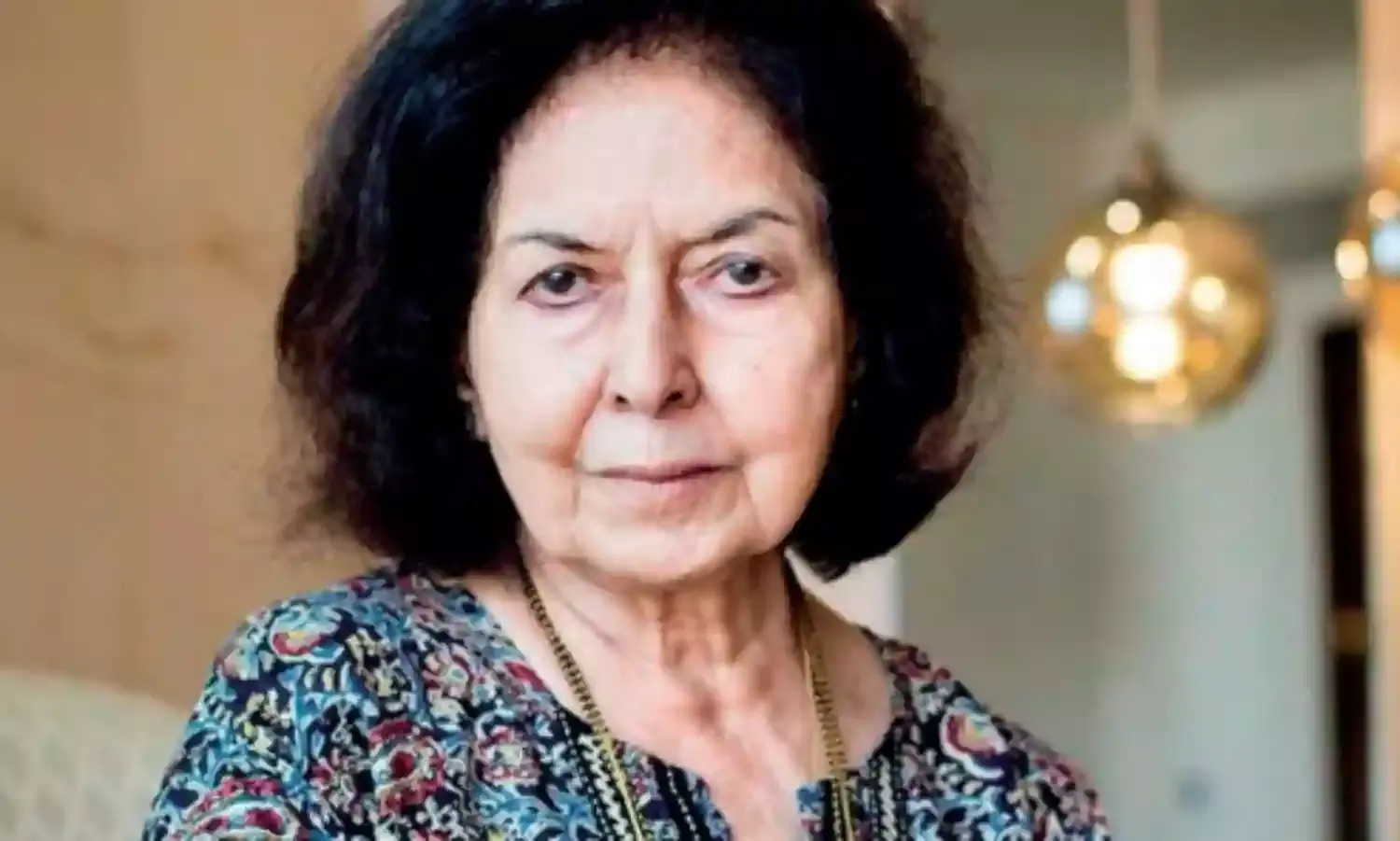Our Freedoms Are in Danger, Says Nayantara Sahgal After Invite to Inaugurate Marathi Lit Fest Was Cancelled
Invite cancelled because of political pressure, says reputed author

NEW DELHI: Renowned author Nayantara Sahgal has been news again after an invitation to her for inaugurating the Akhil Bhratiya Marathi Sammelan was abruptly cancelled, Sehgal said that this was done under political pressure.
The three-day Marathi literature festival is being organised jointly in Yavatmal by the Akhil Bhartiya Marathi Sahitya Mahamandal and a local outfit called Dr V B Kolte Sanshodhan Kendra Ani Vachanalay.
Nayantara Sahgal, a cousin of late Prime Minister Indira Gandhi had opposed Emergency. And in 2015 returned the Sahitya Academy Award as a protest against the growing intolerance and violence in the country.
In an exclusive interview to the The Citizen, Sahgal recalls the sequence of events that led the cancellation of events, talks about growing intolerance in the country and also how this government has been different from its predecessors.
Q. Can you recount the sequence of events that led to the cancellation of you inaugurating the Marathi Sammelan in Mumbai on January 6?
A. I was invited to inaugurate the event by Marathi Sahitya Sammelan which I generously accepted. They went ahead and made all the arrangements. I had prepared the speech to deliver there but all of a sudden on Jan 6 I got to know that I was disinvited. I assume this was under political pressure.
Who were the others expected at the inauguration ceremony?
As far I know, Chief Minister, Devendra Fadnavis is to preside over the inaugural function on January 11 along with local BJP MLA Madan Yerawar who is the chairman of the Welcoming Committee.
What did you plan to say at the inaugural function?
I wanted to talk about the threats to the existing democratic structure of our country. The attacks of on the freedom of speech, eating and living habits of our people and how all this are going to impact our society at large.
An excerpt from the speech that was to be translated in Marathi.
“Our freedoms are in danger. The dangers to them are so much on my mind that when I was thinking about what I should say to you, I knew I had to talk about all that is happening in India today, because it is affecting every side of our lives: what we eat, whom we marry, what we think and what we write, and, of course, how we worship. Today we have a situation where diversity, and opposition to the ruling ideology, is under fierce attack.”
Do you think this has to do something with you returning the Sahitya Academy Award owing to growing intolerance in the country?
My reputation is all well known and so are my writings and speeches. They knew everything about it. Not that they didn’t know about me. It’s very strange. Why did they invite if they had to eventually cancel it. I have all reason to believe that this was under tremendous political pressure.
From the extract of your speech, I understand that you believe that there are attacks on the plural ethos of this country. How do you think the situation is different from what it was earlier, emergency, post emergency?
I am not saying that things have escalated in the past four or five years. I am saying that we never had a government with this sort of agenda. The Emergency was clearly a dictatorship and I had opposed it despite being Indira Gandhi’s cousin. However, let me reiterate that Emergency didn’t seek to uproot our secular democratic foundation. This government wants to change the Constitution. They want to attack everyone who is not a Hindu without realising that millions of Hindus oppose the divisive policies of this government.
But there was a NDA dispensation from 1999 to 2004; don’t you think they also stood for similar policies to what we are witnessing today?
No, I differ with you here. I think the (Atal Bihari) Vajpayee government was very different from this dispensation. Vajpayee was not a majoritarian, unlike Modi. He would take everyone along. He was a very decent man who had respect for everyone. In fact it was Vajpayee who reminded Modi of Raj Dharm in Gujarat after the 2002 violence. He was very sensitive to what India stood for. He was praised by someone like (Jawaharlal) Nehru as well in the earlier days. Nehru always encouraged Vajpayee and congratulated him for making wonderful contributions to Parliament then.
It is very interesting to the Raj Thackery has come out in your support, what do you have to say about this?
I am very happy that Mr. Raj Thackery has issued a statement. I will accept support coming from anywhere. I don’t want to get into details of their politics but if they have stood up for free speech now, it is good for them.



